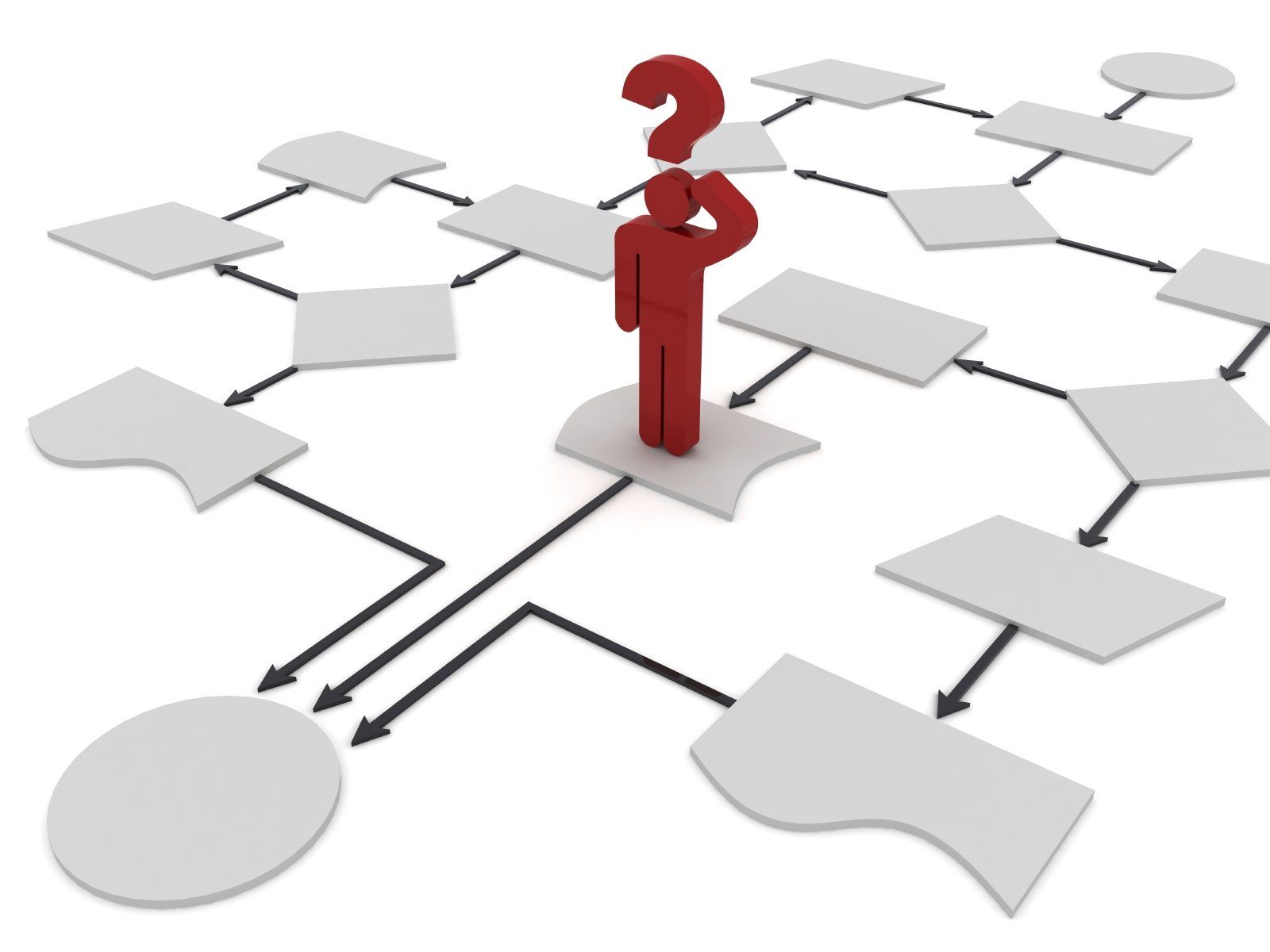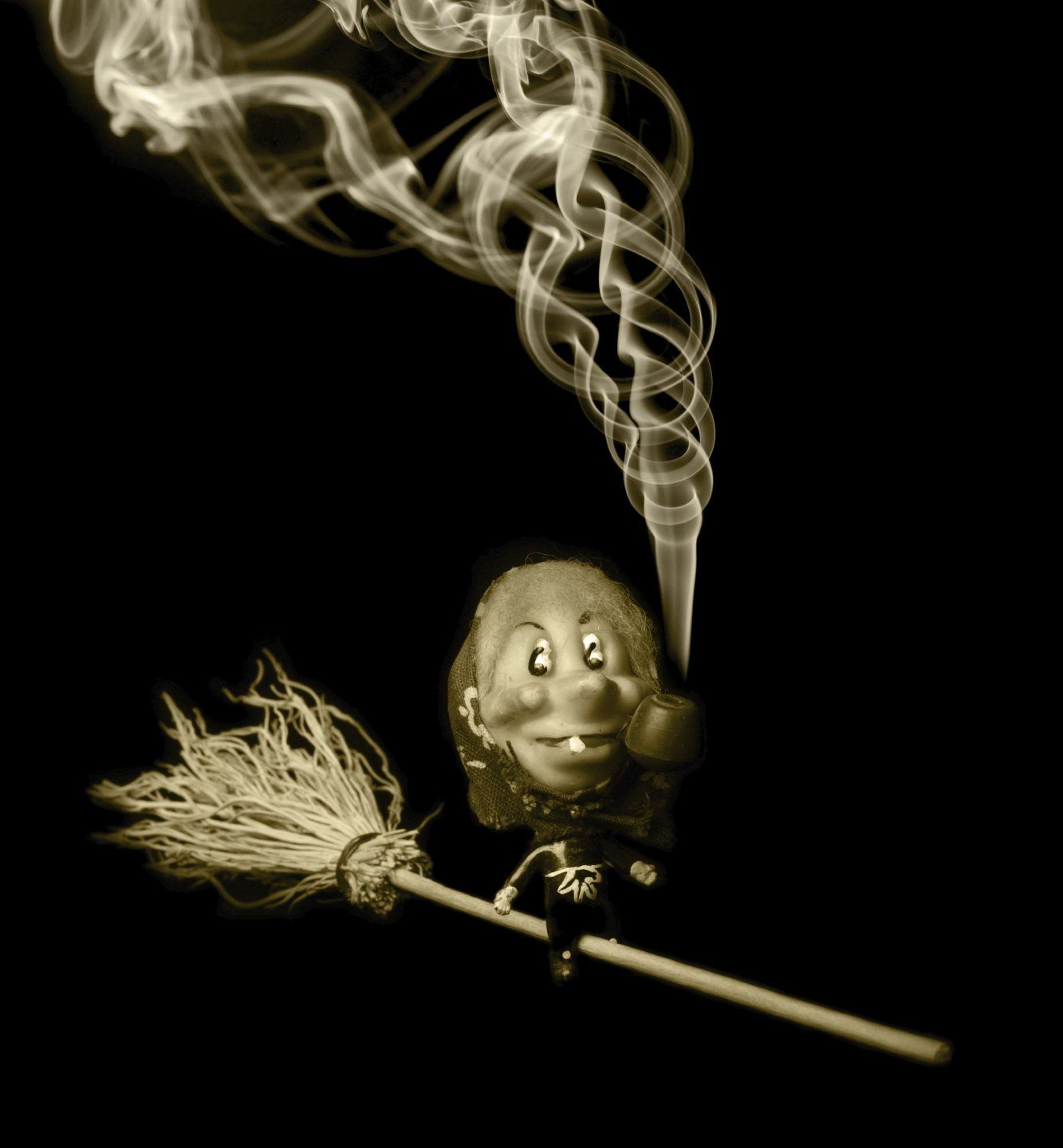Narcissists Are From Neptune
Dr Supriya McKenna
Making Sense Of The Narcissist's Behaviours
There are many incredibly difficult things to deal with during the breakdown of a narcissistic relationship, but a major one (that can prevent you from healing and moving on) is continuing in the cycle of trying to make sense of the relationship and the narcissist’s confusing behaviours.
The key fact is this - although narcissists are all superficially different, at their core, they are the same. They have all been programmed with the same hardware. They all operate from the same instruction manual. And unless you are aware of this manual, you assume that their behaviours are governed by the same rules and morals as your own. Once you understand that this is simply not the case, you can begin to stop the cycles of rumination in your mind, in which you wonder why (and how they could have) done or said certain things.
To coin a phrase from the John Gray analogy, if men are from Mars and women are from Venus, Narcissists are from Neptune. And Neptunians are fundamentally wired differently from you.
At the beginning of the process of emotionally disengaging from the narcissist (whether they are your boss, partner, parent, sibling or co-worker), victims are often full of questions - the ‘But Whys’, as I call them.
“But why would she use our children as pawns? But why would she lie about me? But why would he try to take the possessions that he knows matter to me, when he doesn’t even like them? But why would he blatantly take credit for my work? Steal all our savings? Praise me one moment and shame me the next? Have such double standards when it comes to morality? Try to get custody of the children when he doesn’t even have time for them? Play work colleagues off one another by spreading rumours? Suddenly go cold on me, giving me the silent treatment? Tell me to go for the promotion but then block me from even being shortlisted? Tell people that I am an alcoholic/prostitute/abuser? Tell people that I am the narcissist? Threaten suicide if I leave whilst having an blatant affair? Commit insurance fraud? Blatantly lie about something to someone in front of me? Suddenly seem to prefer my sibling over me? Keep me hanging with the promise of a relationship but then move in with someone else? ” The list of seemingly bizarre behaviours is endless, and exhausting.
But the answer to all these questions is a simple one: Because he (or she) is a narcissist.
Yes. Read it again, and imprint it into your mind, so that the next time you notice yourself asking a But Why question, in complete confusion, the real answer comes to you straight away. Because he (or she) is a narcissist.
No matter how charming the narcissist seemed at first. How affable they seemed. How helpful and kind. How vulnerable. How altruistic. What a fine, upstanding member of the community they seemed to be. Over the course of my work I have come to realise that there are as many different masks as there are narcissists, if not more. Narcissists are wired to effortlessly wear these masks, and change them whenever it suits their agenda to do so. It’s notoriously hard to reconcile the version of themselves that they first portrayed to you with the contradictory behaviours they slowly start to exhibit. This is made even more difficult as they alternate the ‘good’ behaviours with the ‘bad’, keeping victims in a state of utter befuddlement.
But Narcissists are from Neptune. It’s just what they do on Neptune. It’s the way they were brought up. They cannot help it (which doesn’t mean that you shouldn’t protect yourself from their harmful behaviours, or give in to misplaced compassion). And these behaviours become particularly prounounced during the relationship breakdown process, when the narcissist has been called out, and is suffering from what is known as 'Narcissistic Injury', which triggers their 'Narcissistic Rage'.
But here is the really important bit. The more you allow yourself to think about the narcissist, and their confusing behaviours, the more you set up addictive habits of thought patterns, which then become incredibly hard to break.
These negative thought patterns intrude on your conscious thoughts more and more, as a result of what neuroscientists call “neuroplasticity”. Basically, every time you have a certain thought, or patterns of thoughts, certain nerve cells (neurons) in the brain connect together forming ‘neural pathways’. The more you think the thought, the more neurons are recruited into this particular thought pathway.
What started as a trodden-down path in the grass turns into a shingle pathway. Then into a country lane. Then into a dual carriageway. And before you know it, there’s a superhighway of ingrained thought, a thick bundle of wired-together nerves, that your brain hurtles you down at the slightest provocation, before you even have a chance to realise what is happening. These thoughts about the narcissist’s behaviour become automatic, reflex, go-to defaults, hijacking your emotional wellbeing, and getting you stuck in that cycle of unhelpful rumination which can last for months or years.
So how can you prevent this from happening, and what can you do if you recognise that it is already happening?
And remember this: Be kind to yourself. Although hundreds of thousands (or even millions) of people worldwide have experienced what you are going through, the chances are that very few people around you will understand. You are not alone, no matter how isolated you feel. And, with appropriate expert help, this too shall pass.
The key fact is this - although narcissists are all superficially different, at their core, they are the same. They have all been programmed with the same hardware. They all operate from the same instruction manual. And unless you are aware of this manual, you assume that their behaviours are governed by the same rules and morals as your own. Once you understand that this is simply not the case, you can begin to stop the cycles of rumination in your mind, in which you wonder why (and how they could have) done or said certain things.
To coin a phrase from the John Gray analogy, if men are from Mars and women are from Venus, Narcissists are from Neptune. And Neptunians are fundamentally wired differently from you.
At the beginning of the process of emotionally disengaging from the narcissist (whether they are your boss, partner, parent, sibling or co-worker), victims are often full of questions - the ‘But Whys’, as I call them.
“But why would she use our children as pawns? But why would she lie about me? But why would he try to take the possessions that he knows matter to me, when he doesn’t even like them? But why would he blatantly take credit for my work? Steal all our savings? Praise me one moment and shame me the next? Have such double standards when it comes to morality? Try to get custody of the children when he doesn’t even have time for them? Play work colleagues off one another by spreading rumours? Suddenly go cold on me, giving me the silent treatment? Tell me to go for the promotion but then block me from even being shortlisted? Tell people that I am an alcoholic/prostitute/abuser? Tell people that I am the narcissist? Threaten suicide if I leave whilst having an blatant affair? Commit insurance fraud? Blatantly lie about something to someone in front of me? Suddenly seem to prefer my sibling over me? Keep me hanging with the promise of a relationship but then move in with someone else? ” The list of seemingly bizarre behaviours is endless, and exhausting.
But the answer to all these questions is a simple one: Because he (or she) is a narcissist.
Yes. Read it again, and imprint it into your mind, so that the next time you notice yourself asking a But Why question, in complete confusion, the real answer comes to you straight away. Because he (or she) is a narcissist.
No matter how charming the narcissist seemed at first. How affable they seemed. How helpful and kind. How vulnerable. How altruistic. What a fine, upstanding member of the community they seemed to be. Over the course of my work I have come to realise that there are as many different masks as there are narcissists, if not more. Narcissists are wired to effortlessly wear these masks, and change them whenever it suits their agenda to do so. It’s notoriously hard to reconcile the version of themselves that they first portrayed to you with the contradictory behaviours they slowly start to exhibit. This is made even more difficult as they alternate the ‘good’ behaviours with the ‘bad’, keeping victims in a state of utter befuddlement.
But Narcissists are from Neptune. It’s just what they do on Neptune. It’s the way they were brought up. They cannot help it (which doesn’t mean that you shouldn’t protect yourself from their harmful behaviours, or give in to misplaced compassion). And these behaviours become particularly prounounced during the relationship breakdown process, when the narcissist has been called out, and is suffering from what is known as 'Narcissistic Injury', which triggers their 'Narcissistic Rage'.
But here is the really important bit. The more you allow yourself to think about the narcissist, and their confusing behaviours, the more you set up addictive habits of thought patterns, which then become incredibly hard to break.
These negative thought patterns intrude on your conscious thoughts more and more, as a result of what neuroscientists call “neuroplasticity”. Basically, every time you have a certain thought, or patterns of thoughts, certain nerve cells (neurons) in the brain connect together forming ‘neural pathways’. The more you think the thought, the more neurons are recruited into this particular thought pathway.
What started as a trodden-down path in the grass turns into a shingle pathway. Then into a country lane. Then into a dual carriageway. And before you know it, there’s a superhighway of ingrained thought, a thick bundle of wired-together nerves, that your brain hurtles you down at the slightest provocation, before you even have a chance to realise what is happening. These thoughts about the narcissist’s behaviour become automatic, reflex, go-to defaults, hijacking your emotional wellbeing, and getting you stuck in that cycle of unhelpful rumination which can last for months or years.
So how can you prevent this from happening, and what can you do if you recognise that it is already happening?
- Awareness is the key. Make a pledge to yourself to notice every time a thought about the narcissist, including a ‘But Why’ thought, invades your mind.
- Count the number of times this happens in a day for several days in a row. At first you may be shocked at how many times it can happen in an hour, let alone a day.
- Every time it happens, remind yourself to not engage with the thought. Immediately break the chain of thought by saying to yourself “Because he’s (she’s) a narcissist” or “Narcissists are from Neptune,” or whatever phrase works for you, as appropriate.
- Make a point of practising self-compassion. If you have a bad day, when your thoughts run away with you, do not judge yourself harshly. Tomorrow is another day. This is going to take some time.

Do I actually need a lawyer? You may be wondering whether you need a lawyer if you are divorcing, as it is possible in some countries, including in the UK, to apply for a divorce online. However, here in the UK at least, there are three bits to the process – the paper exercise of the divorce, which you don’t need a lawyer for, and the other two parts – the finances and the children. Settling the finances with a narcissist is unlikely to happen without legal input, sadly, as narcissists have a huge sense of entitlement, a need to ‘win’, a lack of empathy regarding your circumstances, a need for narcissistic supply through causing drama and conflict, a belief that you (once you have split up) are ‘all bad’ and deserving of punishment, and a need to draw out the process for as long as possible, by continually shifting goalposts. Add to that the fact that they are practised liars, and will not tell the truth about their finances, and you can see why successfully sorting things out on your own with them is highly unlikely (and probably impossible). If they decide to cause conflict with the children, as they often do, lawyers may well also be needed here. Note that it is possible to represent yourself in court, without a lawyer, but that this tends to work best later on, when you have gained experience in how the system works, and are feeling emotionally stronger. I discuss the benefits of being a ‘Litigant in Person’ in Chapter 28 of my book Narcissists in Divorce: From Leaving to Liberty - The Truth, The Whole Truth and Nothing But The Truth. In the UK there are two types of divorce lawyer – the ‘solicitor’ who does the day-to-day work and liaises directly with you, and the ‘barrister’ (who speaks on your behalf in court, and gives more complicated legal advice). If your barrister has been instructed by your solicitor you can only contact them via your solicitor. However, some barristers (‘direct access barristers’) can be instructed directly by clients, without a solicitor being involved. I need to be brutally frank here, and tell you that far too many lawyers will not disclose the reality of the dysfunctional court system to clients, and they have a vested commercial interest in protracted cases, which narcissistic divorces often become. The wrong lawyer can easily rack up your legal bills but leave you with little to show for it. This is particularly true in the UK for solicitors. So, if you happen to be a UK father, whose narcissistic wife is preventing you from seeing your children, you might want to contact Fathers 4 Justice (www.fathers-4-justice.org) before deciding on whether to instruct a solicitor. Unfortunately, no such cost-effective organization exists exclusively for mothers battling abusive fathers in the UK. However, the UK charity Familes Need Fathers (fnf.org.uk) does provide resources to parents of any gender, for a membership fee. But regardless of where in the world you live, most of you will need to know how to go about finding the right lawyer. The fact of the matter is this: most lawyers do not understand Narcissistic Personality Disorder to the extent they need to, to be able to help you effectively. And many will simply pooh-pooh the idea that your partner is a narcissist, because this is a term that commonly gets bandied around incorrectly, especially in break-ups. I recently gave a talk to 250 lawyers about NPD, during which I asked how many of them had been told by a client that their ex was a narcissist, within the last 2 months. Every single hand went up. I then asked how many of them, having spent a bit of time on these cases, now thought that they were dealing with a ‘real’ narcissist. Only five hands remained in the air, and as I gave my talk, I could see these lawyers nodding their heads vigorously, as I described true narcissistic divorce behaviors. So you can see the problem – the ‘buzzword’ use of the narcissism word, in the general population, means that lawyers are unlikely to take your concerns seriously, until significant emotional, legal and financial damage has already been done. This means that, unless you have a strong recommendation of someone who specifically understands NPD, you are going to have to interview quite a few lawyers (they will often offer free initial consultations) until you find the best one for you. It may be that you have to settle for a lawyer who understands domestic abuse and coercive control instead, but only if they are willing to learn about NPD, and will take all of your concerns seriously. It may also serve you to choose a lawyer who is not in your local area, especially as, since Covid, most consultations can be carried out remotely. You may have a distinct advantage if you do this, as an out-of-area lawyer will not have a reputation of ‘being reasonable’ to maintain with your local judges, and is more likely to actually fight for you, rather than trying to tiptoe around or placate the judge. Lawyers care deeply how their local judges view them – and this can be to your detriment. How to interview a potential lawyer When interviewing potential lawyers, you will need to: Explain the narcissist’s behaviors Explain how you have been affected Ask the lawyer specific questions Explaining your partner’s behaviors Describe the behaviors that you (and any children) have been subjected to during your relationship, with specific examples of each behavior. It’s definitely worth writing these down, to keep you focused. Include examples of: Physical abuse (often not present at all in NPD, however). Rape or sexual boundary violations. Repeatedly putting you down, criticizing you, or calling you names. Isolating you from friends and family. Manipulative behaviors. Exploitative behaviors where they have used you for their gain. Passive aggression (such as silent treatments or stonewalling you). Projection (accusing you of things that they themselves are doing or being, for example accusations of affairs or flirting). Favoring a ‘golden child’ over a ‘scapegoat’, and having an ‘invisible child’. Going through repeated cycles of being nice to you, but then being nasty (the ‘cycle of idealization and devaluation’). Lovebombing at the start of the relationship. Low empathy towards you and the children. Entitled behavior. Controlling behaviors such as: Controlling your finances, or preventing you from having a job. Restricting your access to transport. Threats, including of blackmail (e.g. revenge porn). Threats if you leave them (including threats of suicide). Monitoring how you spend your time. Monitoring your communication with others. Exerting control over your everyday life, such as dictating where you go, who you see, what you wear and preventing you from sleeping. Stopping you from accessing support services, such as medical services or specialist support (including for the children). Forcing you to take part in criminal activity such as taking the blame for their offenses (e.g. speeding tickets). Destroying or damaging household goods, or cruelty to pets Gaslighting such as by: Telling you that you are ‘crazy’. Telling you lies that make you question your reality. Rewriting history so that you question your memory. Invalidating your feelings (e.g. telling you that your feelings are ‘wrong’). Explaining how you have been affected Include examples such as: Walking on eggshells. Continually trying to please them with ‘fawning’ behaviors. Anxiety, depression, panic attacks, complex PTSD. Any physical illnesses. Loss of confidence/self-esteem/support systems. Asking the lawyer specific questions You will want to know: What they understand by the term Narcissistic Personally Disorder. If they tell you that they ‘don’t believe in labelling people’, that ‘everyone thinks their ex is a narcissist’, that narcissists are ‘just another word for high-conflict’ or that it ‘makes no difference whether your partner is a narcissist’ to the legal process and your divorce, get out of there, immediately. If they blithely tell you that they are completely au fait with dealing with narcissists, make sure they tell you the specifics of how narcissists behave in divorce. (A client of mine was once duped by his lawyer into believing that he understood NPD because he had written a blog post on his firm’s website about it. £85,000 later, and no further on in the case, it became patently clear that his lawyer’s blog post had simply been a way to jump on the NPD bandwagon, to attract clients, and in fact, he didn’t really have a clue.) How much experience they have of narcissistic divorces, and what they think the chances are of settling things out of court (through negotiation through lawyers or mediation, for example). If they pride themselves on never or rarely having cases that end up in court, they probably do not have the experience that you need, as the fact is that most divorces like this end up in court. Whether they think narcissists ‘calm down’ over time, and become more reasonable as the divorce progresses. The correct answer is that they do not. If they get this wrong, they have failed the interview. Whether narcissists have the best interests of their children at heart. If they tell you that ‘all parents love their children, whether narcissists or not’ they will not be right for you, and they will enable a lot of damage to be done before they work out the truth. Whether they will help you write any witness statements for court, and put together your financial disclosure, or whether they will just leave this to you. Whether they will go through your partner’s financial disclosure (such as their bank statements) in detail with you, looking for discrepancies and missing information, or whether they expect you to do this without them (most simply do the latter). Whether they are willing to learn about NPD (on their own time) and take on board what you tell them about it, so that your case runs more smoothly. Key takeaways It may take a while to find a lawyer who fits the bill. But whatever you do, don’t choose a ‘nice’ lawyer (with little experience of domestic abuse, coercive control or NPD) over a less personable one who does have the required experience. So often, my clients admit to me that they gave their kindly lawyer repeated chances, because they ‘liked them’, and because they thought that they could learn about NPD during their case, and so help others later on. I’m going to be stern here: you do not just need ‘nice’, ‘understanding’ and ‘sympathetic’ – you need effective too. And as to educating your lawyer so that they can help others (if this is part of your thought process) – again, this may go against the grain, but now is the time for prioritizing your needs and those of your family. I also have to caution you that a senior lawyer who seems very experienced may actually be too stuck in their ways to be effective in your case, although that’s not always true. Conversely, a very junior lawyer might find themselves overwhelmed by everything that comes their way during your case, but be unable to be honest about this with you, and carry on regardless. I’ll warn you now – you may well have to change lawyers at some point in the process, and I explain this further in Chapter 31 of Narcissists in Divorce: From Leaving to Liberty - The Truth, The Whole Truth and Nothing But The Truth , from which this blog post was adapted.

The word "narcissist" is ubiquitous, but are we using it correctly or is it just a buzzword? Expert Dr Supriya McKenna explains what real narcissism is Do you know a narcissist? If you think of your everyday acquaintances, who springs to mind as being a possible narcissist? Your housemate, who is too selfish and lazy to do her own washing up? Your sister, who has never left the house without full make up on? Your work colleague, who is obsessed with designer clothes? Your partner, who cheated on you? Your best friend, who insists on driving a sports car he can’t afford? That date, who ghosted you? But are these people actually narcissists? Well, maybe—but having these traits in isolation doesn’t tell us much. How to recognise a narcissist True "narcissism" is actually Narcissistic Personality Disorder (NPD), a real, diagnosable personality disorder, and there is a precise range of very specific behaviours that result from having it. These behaviours go well beyond being just mean, vain or selfish—undesirable and irritating though these are. "You (or someone you know) will definitely know a real narcissist—but it might not be who you think it is" As a society, we have collectively misappropriated the narcissist word—and in using it incorrectly we are downplaying the seriousness of what real narcissism (NPD) is. And worse, because of this, we are missing the true narcissists in our midst. Narcissistic Personality Disorder is estimated to affect up to one in twenty people, although exact figures vary. Each narcissist affects several people to some degree—their partners, children, extended family, friends, work colleagues and even their casual acquaintances. What is Narcissistic Personality Disorder? NPD is fundamentally a condition of low empathy, where the person has a very limited ability to step into another person’s shoes and feel their pain or joy (or any other emotion).This means that narcissists relate to people on a very different level to an empathic person. Essentially, they cannot deeply care about you, other than in the context of what you can do for them. Confusingly, narcissists are usually able to feign empathy. If we add this low empathy to another hallmark feature of narcissism, a sense of entitlement, you can see how narcissists are able to exploit people for their own gain.The narcissist you know may be exploiting different people for different things. They might be taking credit for other people’s work, using their partner as a domestic slave or provider of sex, and using their children as a way to gain admiration from others. "Narcissists are good at feigning empathy, but they cannot truly feel it" Narcissists see people merely as objects, and their exploitation of others often tips into psychological (and sometimes also physical) abuse. Are narcissists born or made? NPD is partly genetic, but it mostly results from how, as children, the person adapted to a difficult upbringing. As a child, the narcissist developed coping strategies which became "wired in". It’s this wiring that leads to the specific patterns of behaviour that adult narcissists exhibit. The vast majority of people with NPD cannot be cured, although a few specialised psychotherapists report some success. At the core of every single narcissist is a feeling of low self-esteem and shame. But these are feelings which a narcissist cannot bear, so they construct a false persona that they hold up to the outside world to hide behind. "At the core of every single narcissist is a feeling of low self-esteem and shame" This false persona is a shield. It protects the narcissist from feeling their true feelings—and it is very convincing to the onlooker indeed. But a narcissist’s protective false persona can only survive in the presence of external validation. "Narcissists need attention from others, at all times, preferably through admiration and adoration." In the absence of this, they secure attention by causing drama and conflict—and even by instilling fear into others. When a narcissist is getting enough attention their false persona is strong, and they can believe that they are special and unique. The most important thing to know about narcissists is that it is their desperate need to feel special that drives all of their behaviours, and that their need for attention (which is known as "narcissistic supply") is constant—their armour will crumble without it. Types of Narcissistic Personality Disorder There are four major types of false persona to look out for, which can overlap: The Exhibitionist Narcissist appears to be devastatingly charismatic, and may be clever, funny, or very sexy. They relish attention. The Devaluing Narcissist is openly toxic. They put people down in order to feel better about themselves through ridiculing, shaming, badmouthing and name-calling. The Communal Narcissist presents themselves as a do-gooder—needing to be seen by others as the most generous, most kind or the most caring. And the Closet Narcissist, the hardest type to spot, shies away from the limelight, but often associates with people who are special to feel special by association. They get their attention in much more sneaky ways than the other types of narcissist—often through playing the victim, and they appear quiet, shy and effacing. "But, regardless of outward type, all narcissists exploit others, and no matter how much love they receive, they cannot be "loved better". " Signs of narcissistic behaviour Telltale behaviours of narcissism "Love bombing" at start of relationships Repeating cycles of niceness and nastiness An inability to be alone Lack of deep, long term friendships Inability to take the blame or responsibility, blaming others instead An inability to apologise and mean it Violating boundaries Lying and gaslighting Episodes of rage Jealousy Accusing others of what they themselves are doing Moral hypocrisy Playing the victim Lack of empathy Entitlement Exploiting others Aggression (including passive aggression) Devaluing and badmouthing others (putting them down, ridiculing them) Manipulating and playing people off against each other Selfishness Conditional, shallow love A need to control others "Lying, gaslighting and manipulation are all hallmark traits of Narcissistic Personality Disorder " A true narcissist will exhibit nearly all of these behaviours and, the closer you are to them, the more of them you will see. But because they intersperse them with nice times, playing what I call "Nice Narcissist, Nasty Narcissist’" you are likely to find yourself sucked back into the relationship repeatedly. This is what real narcissism looks like, and it’s unhealthy, toxic and hard to escape from. But it’s not so hard to recognise—once you know what to look out for. This article originally appeared in Reader's Digest - you can read it here .















